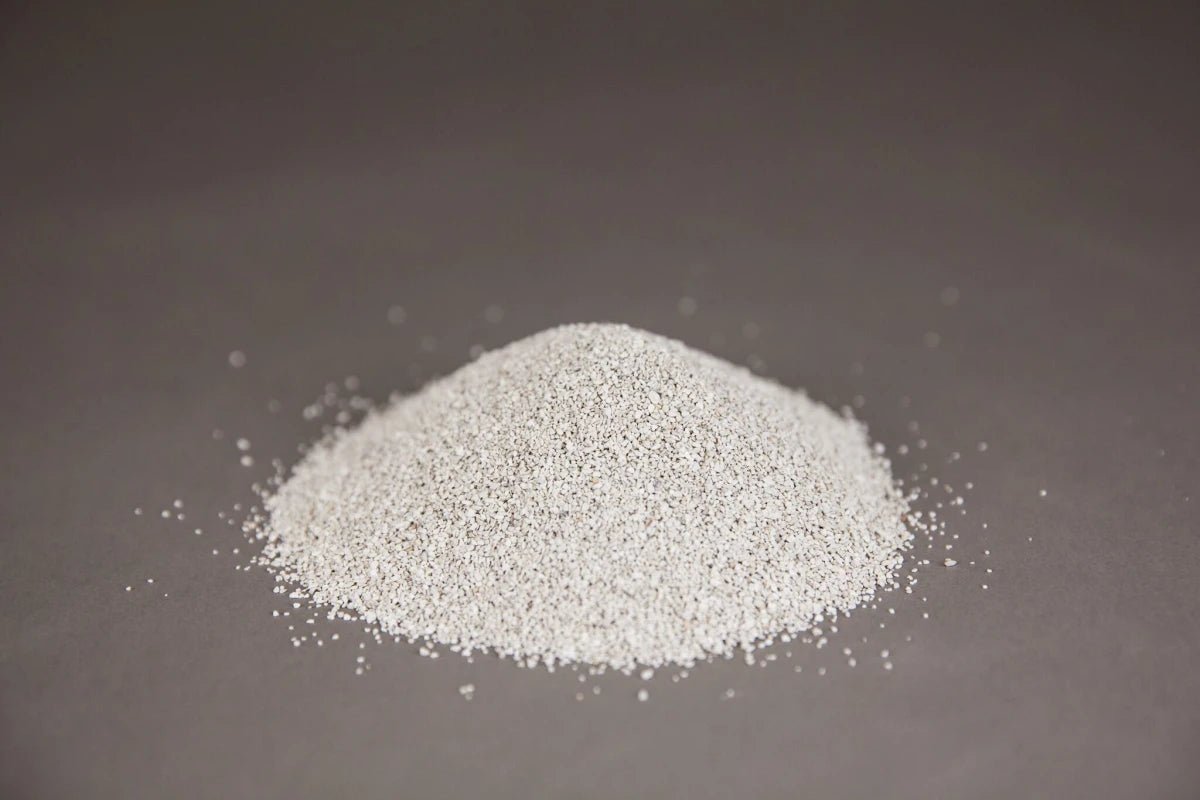Description
Zeolites are a group of naturally occurring or synthetically produced hydrated aluminosilicate minerals with a unique, porous structure. These minerals are known for their ability to absorb, adsorb, and release various ions, molecules, and gases, making them valuable in a wide range of industrial, environmental, and agricultural applications. Zeolites have a three-dimensional, open crystal lattice structure, which creates a network of interconnected channels and cavities with a high surface area. Zeolites can improve the productivity of any texture of soil, improving water and mineral retention in sandy soils and improving aeration and minimizing compaction in heavier soils. Added to compost, zeolites retain ammonium ions and prevent their transformation to ammonia gases, keeping the nitrogen from escaping into the air.
While zeolites are not a primary source of essential nutrients for plants, they offer several advantages that can indirectly support plant health and growth:
-
Improved Water Retention and Release: Zeolites have a highly porous structure with a network of interconnected channels and cavities. When mixed with soil, they can absorb and retain water, gradually releasing it to plant roots as needed. This property helps prevent waterlogged conditions in clay soils and provides a steady supply of moisture to plants during dry periods.
-
Enhanced Nutrient Retention: Zeolites have a high cation exchange capacity, which means they can hold onto and slowly release essential nutrients, such as ammonium and potassium ions. This can help reduce nutrient leaching from the soil and make these nutrients more available to plant roots over time.
-
Improved Soil Aeration: Zeolites can improve soil aeration by promoting the formation of larger soil aggregates. This enhanced soil structure allows for better root penetration and oxygen exchange, which is essential for healthy root development and overall plant growth.
-
Reduced Soil Compaction: Zeolites can help alleviate soil compaction by improving soil structure, which can be particularly beneficial in clayey soils where compaction is a common issue. Loose, well-aerated soil encourages root growth and nutrient uptake.
-
pH Buffering: Zeolites can have a slight buffering effect on soil pH, helping to maintain a more stable pH range. While they won't drastically alter soil pH, this stability can benefit plants that prefer a specific pH range for optimal growth.
-
Reduction in Salinity Stress: Zeolites can adsorb excess salt ions from the soil, helping to reduce soil salinity. High salinity levels can be detrimental to many plants, and zeolites can mitigate this stress by absorbing and immobilizing salt ions.
When using zeolites as a soil amendment for plant growth, it's essential to follow recommended application rates and guidelines specific to your soil type and the plant species you are cultivating. While zeolites can offer these benefits, they should be considered as part of a comprehensive soil management plan that includes proper nutrient management and other soil improvement practices. Additionally, zeolites may be more effective in soils with certain characteristics, such as high clay content or water retention issues, compared to soils with different properties.
Add 2–3# for each 10# of potting soil. In gardens add 15–20#/100 sq ft to the top 6" before planting. Spread 1–2½ tons/acre. Water thoroughly after application so the zeolites will absorb the moisture, holding it in a thin film on their surfaces until needed


